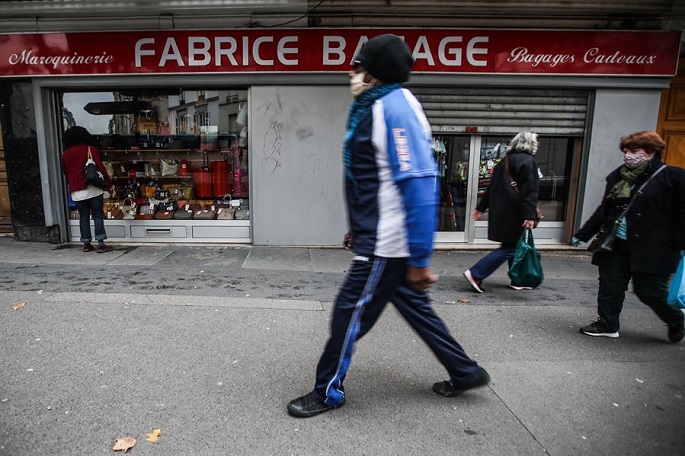Coronavirus can linger in air for 24 hours during winter
Published : 16 Nov 2020, 23:19
Covid-19 can remain infectious for up to 24 hours outdoors during the winter months, according to a study published on Monday by the Vienna University of Veterinary Medicine (Vetmeduni), reported EFE-EPA.
The study analyzed the effect of solar ultraviolet radiation (UVR) on coronavirus, both on surfaces and in aerosols, as it is known as a natural environmental virucide.
REDUCED INFECTIONS IN SUMMER...
The sun’s ability to kill viruses depends above all on the location and the season: in subtropical climates like Sao Paulo, Brazil, “the daily survival fraction is lower than ten-thousandths of all coronaviruses, during the whole year,” the report found.
In Reykjavik, Iceland, “such a reduction can be found in June and July only. But even in Iceland, the solar UV radiation is able to inactivate 90% within 30–100 minutes in summer, with complete sterilization within a day.”
To measure the relationship between solar radiation and the deactivation of SARS-Cov-2, scientists combined satellite data on the amount of ultraviolet radiation reaching the Earth with the information available on the effectiveness of this type of radiation on coronaviruses.
According to Alois Schmalwieser, who led the study, solar radiation disinfection is "very effective in aerosols" outdoors, since it also has no alternative.
"The virus is not very sensitive to temperature: it would take 50 or 60 degrees Celsius (to deactivate it), temperatures that you only find in the desert," the researcher explained to Efe.
In cases of person-to-person infection, however, ultraviolet radiation would have little effect, since the transfer of the virus is much faster than its deactivation.
...BUT NOT IN WINTER
During the coldest months of winter, when there are fewer hours of sunshine and clouds often cover the sky, the disinfecting effect of UV radiation is reduced considerably, especially in northern and central European countries.
According to researchers' estimates, in April 2020 - just after the first wave of the pandemic - solar radiation had an impact on coronavirus sterilization throughout the European continent. That influence will be much less in December and throughout the winter.
"In countries like Portugal or Spain the difference will not be as great as in Vienna, where we have cloudy skies from November to February," Schmalwieser points out.
The scientists’ next goal is to measure the precise relationship between the number of infections and the effect of solar radiation.
Schmalwieser believes that the virus' greater ability to survive outdoors during the winter months could be countered by staying indoors longer, since the cold makes people go out less (although it is known that more infections occur indoors).


